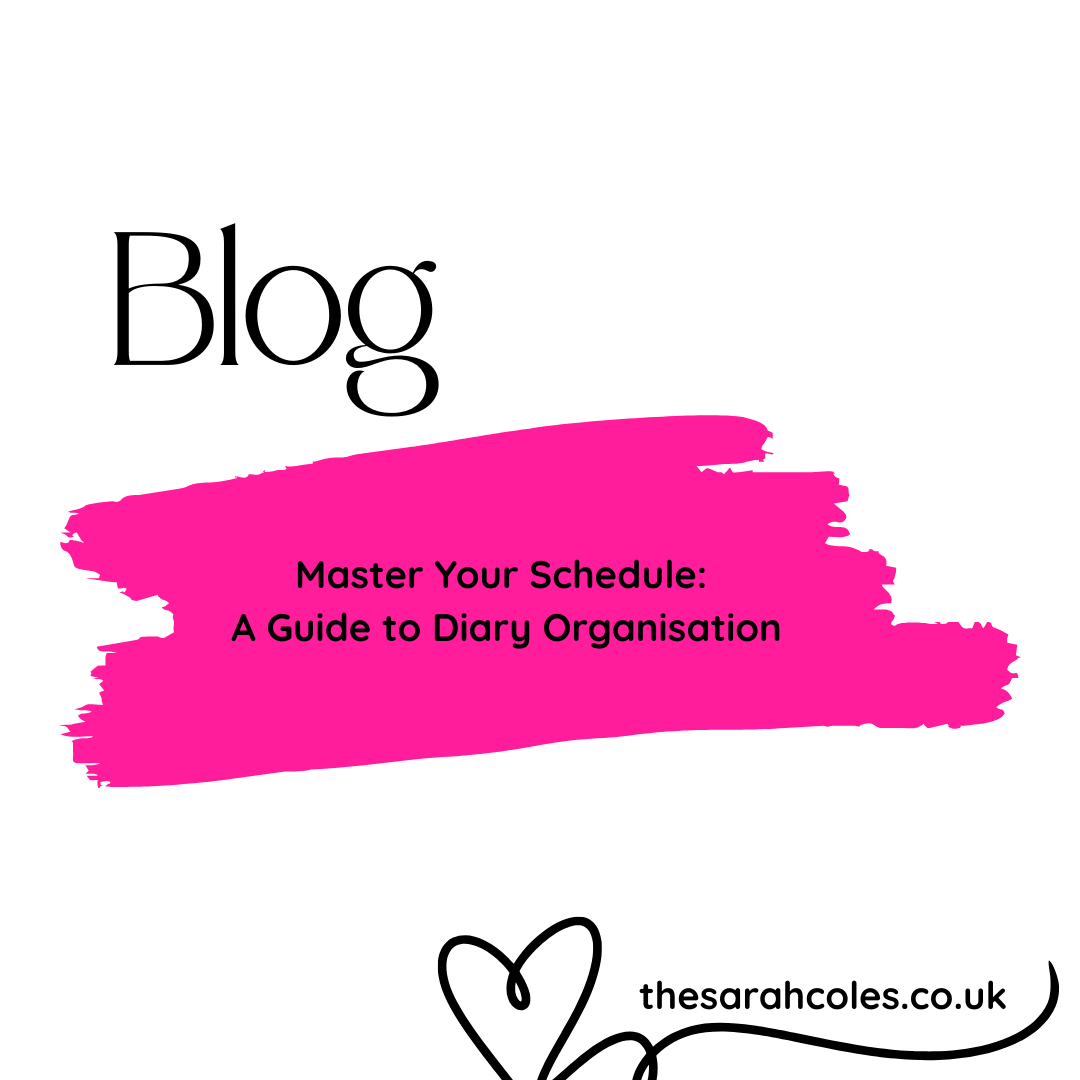Your diary serves as the foundation of an organised life, acting as your personal command centre for managing appointments, deadlines and precious moments with loved ones. When properly structured, it transforms from a simple calendar into a powerful tool that keeps you punctual, prepared, and in control of your time.
A well-organised diary does more than just remind you where to be and when. It anticipates your needs, gives you breathing space between commitments, and ensures you never miss those important life moments that matter most. Whether you’re juggling work meetings, family commitments, or personal goals, the right diary system can revolutionise how you approach each day.
Let’s explore how to transform your diary into an efficient, reliable companion that supports every aspect of your busy life.
Build Your Foundation with Essential Entries
Capture Every Birthday and Special Occasion
Never forget another birthday by adding all important dates to your diary with strategic reminder systems. Set alerts one week before each birthday to give yourself ample time to purchase thoughtful gifts, write cards or plan celebrations.
Create a separate section or use colour coding to distinguish between different types of celebrations—family birthdays, close friends, work colleagues and significant anniversaries. This visual system helps you quickly identify the level of preparation each occasion requires.
Consider adding additional reminders for milestone birthdays that might need extra planning. An 18th, 50th, or retirement celebration deserves more than a last-minute card from the corner shop.
Plan Ahead for Gift and Outfit Purchases
Strategic planning prevents those frantic last-minute shopping trips. Add reminders one to two weeks before events that require special purchases—whether that’s a wedding outfit, graduation gift or holiday shopping.
Create a simple coding system in your diary entries. Use symbols like “G” for gift needed, “O” for outfit required, or “P” for party planning. This quick visual reference helps you spot upcoming preparation tasks at a glance.
For recurring events like Christmas or annual work parties, add these reminders to your diary template for future years. You’ll thank yourself when December arrives and you’ve already blocked out gift-shopping time.
Master Your Time Management
Block Time Between Appointments
Avoid the stress of rushing between commitments by building buffer time into your schedule. Allow at least 15-30 minutes between appointments, depending on travel time and the nature of your meetings.
This breathing space serves multiple purposes: it accounts for meetings running over, provides time to review notes before your next appointment and prevents that perpetual feeling of being behind schedule.
Consider the energy requirements of different appointments too. Following an intense work presentation with a relaxed coffee meeting gives you time to decompress and shift mental gears.
Schedule Non-Negotiable Personal Time
Block out dedicated slots for family time and personal activities just as seriously as you would any business meeting. These aren’t luxury add-ons—they’re essential appointments with yourself and your loved ones that deserve protection in your diary.
Create recurring entries for weekly family dinners, monthly date nights, or Sunday morning walks. When these slots are visually present in your diary, you’re less likely to accidentally book over them.
Use different colours or symbols to distinguish between work commitments and personal time. This visual separation helps maintain boundaries and ensures both areas of your life receive proper attention.
Track Important Deadlines
Transform your diary into a deadline management system by adding project milestones and submission dates well in advance. Don’t just note the final deadline—work backwards to create a series of progress checkpoints.
For example, if you have a report due on the 15th, add diary entries for research completion by the 5th, first draft by the 10th, and final review by the 13th. This approach prevents last-minute panic and produces better results.
Use clear, action-oriented language in your deadline entries. Instead of writing “Report due,” try “Submit quarterly report to manager—final check completed.”
Implement Smart Coding Systems
Develop Your Personal Shorthand
Create a consistent abbreviation system that speeds up diary writing while keeping entries clear and meaningful. Use simple codes like:
- M for meetings
- A for appointments
- D for deadlines
- T for travel
- F for family events
- P for personal time
Develop symbols for different types of preparation needed: a gift box symbol for present purchases, a clothing icon for outfit planning or a car symbol for travel arrangements required.
Use Colour Coding Effectively
Assign specific colours to different life areas—blue for work, green for family, red for urgent items, and yellow for personal development. This visual system allows you to assess your week’s balance at a glance.
Maintain consistency in your colour choices across all diary formats, whether you’re using a physical planner, smartphone app or computer calendar. This consistency reinforces the system and makes it second nature.
Create Priority Levels
Establish a simple priority system using numbers (1-3) or symbols (stars, exclamation marks) to indicate the importance and flexibility of different entries. Priority 1 items are unmoveable, Priority 2 can be rescheduled if necessary, and Priority 3 are nice-to-have activities.
This system proves invaluable when unexpected opportunities or urgent matters arise, helping you make quick decisions about what can be moved or cancelled.
Digital and Analogue Integration Tips
Sync Across Platforms
If you use multiple devices, ensure your diary system syncs seamlessly between your phone, computer, and any physical planners. Set up automatic backups to prevent losing important information.
Choose apps and systems that allow easy sharing with family members or colleagues when appropriate. Shared calendars for family events or team projects keep everyone aligned and reduce miscommunication.
Weekly Review Ritual
Dedicate 15 minutes each week to reviewing and updating your diary system. This regular maintenance prevents small issues from becoming major problems and keeps your organisation system running smoothly.
During your weekly review, check for any missing preparation time, conflicting appointments, or opportunities to optimise your schedule. Look ahead to identify busy periods where you might need extra support or lighter personal commitments.
Transform Your Daily Experience
An expertly organised diary becomes more than a scheduling tool—it evolves into your personal assistant, stress reducer, and life balance guardian. By implementing these strategies consistently, you’ll find yourself moving through days with greater confidence and control.
Start with the basics: add those important birthdays, build in buffer time, and create your personal coding system. As these habits become natural, you’ll discover your own refinements and shortcuts that perfectly suit your lifestyle.
Your future self will appreciate the time invested in creating this foundation of organisation, leading to smoother days, stronger relationships and the satisfaction of a life well-managed.
Follow Me on Instagram for Daily Inspiration 🩷
Further reading: Say Goodbye to Desk Envy for Good, Lost Your Drive? Here’s How to Reclaim Your Motivation, How to Say No Without the Guilt: Your Guide to Setting Boundaries








